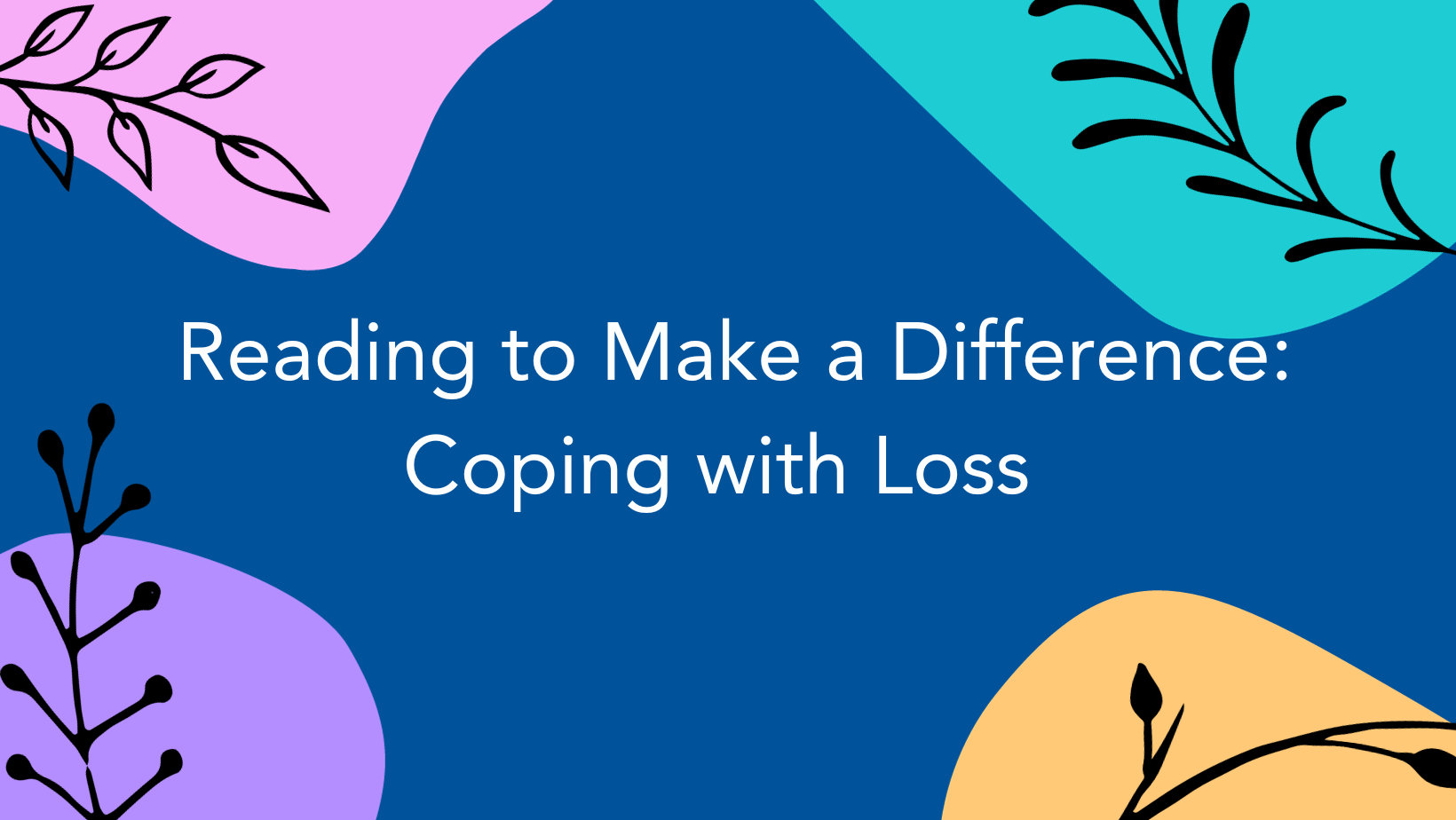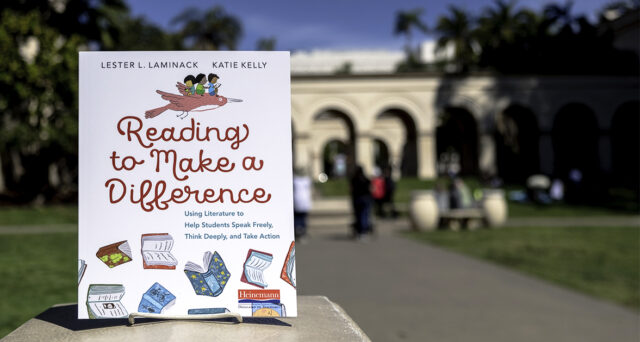
Editor's note: This will begin our series on processing grief and loss. Stay tuned.
We believe in the power of reading, writing, and conversation to stretch the known and expand the heart and mind toward a more inclusive and empathic way of being. In Reading to Make a Difference, we offer a five-phase framework that can both deepen and broaden students’ understandings, insights, and empathy for the greater human family and world we all share:
- Selection of text
- Connection to texts
- Reflection related to texts
- Action
- Next steps
Through a set of carefully selected texts shared by wise and empathetic teachers, children can explore the concept of loss, and we can give them the language to discuss their reactions, feelings, thoughts, and experiences in a safe and supportive setting. Selected texts may mirror the experiences of some children, providing them with both a sense of validation for how they feel and new ways to talk about them. For other students, these texts are more likely to serve as windows that enable them to develop empathy with those who have experienced loss and cope with it daily.
Rather than avoid tough topics in an attempt to protect our children from the hurt and heartache that come with the harsh realities of life, we can support them through these difficult experiences. We can help children cope with their raw emotions and help them understand that it is okay to show feelings and to lean on one another for support. In times when our country seems more divisive than ever, we can find ways to come together, to be connected, and to lift each other up.
Below, 1st grade teacher Andrea Philips talks through incorporating texts into her classroom that address grief and loss.
Teacher Profile
Name: Andrea Phillips
School: Wyandot Elementary School, Dublin City Schools, Ohio
Teaching Experience: 15 years

Why do you think this work is important for children?
“This is a difficult topic to talk about. If it is discussed with kids, it is often with parents, maybe after a death when kids are experiencing these emotions. Reading books and discussing it with peers gives kids a chance to see that everyone has these feelings and situations in their lives. It also gives them a chance to process things when they aren’t actually in the situation. Talking with a group helps make sense of it and gives kids strategies for dealing with the feeling of loss when they experience it.”
Pause and consider the children you teach. Why do they need opportunities to explore coping with loss through books?
“The theme of “coping with loss” pertains to absolutely everyone—whether it is a toy, a friend, or a loved one dying, everyone has experienced loss. I believe that young kids especially need guidance and strategies when trying to process complex feelings and situations. They are usually very successful at connecting their own experiences to those of the characters in the books we read. I think it helps them to be able to reflect on situations when other people/characters are experiencing them.”
What was your process like for selecting books?
"I used a combination of recommendations from other teachers, internet blogs, and articles to find books that looked like they could be a good fit and age appropriate for 6- to 7-year-olds. I read the books that I could find and decided which to pull for my classroom. I gathered and displayed more books than we used for the project. For example, I got books that fit the theme but didn’t read and discuss them all with the class. The kids had chances to read and explore the books on their own and with partners.
I chose the book that I thought would be an introduction or “ease in” to the topic, books that I thought would be very easy for them to understand and relate to. After that, I would choose the next title depending on how the discussion went and what I thought would challenge or broaden their thinking or ideas from the previous discussion.”

Some options to explore:
- Rosie and Crayon by Deborah Marcero
- 14 Cows for America by Carmen Agra Deedy
- Locomotion by Jacqueline Woodson
What led you to the action piece of this project? What pushed you to act on this issue? Why did it hold meaning for you?
“I try and let the kids come up with their action project. I want it to be authentic and so I let them take the lead. Our discussions and the things they take away from them are often different than what I expect… their ideas are always better!
We ended up making a box of things that would help kids feel better when they are missing someone or something. The kids were very excited to come up with ways to help other kids understand that everyone feels that way sometimes and wanted to help them feel better. They were inspired by some of their favorite ways to “feel better” like jokes, stickers, cards and kind words, talking to our guidance counselor, and taking their minds off of why they are sad.
I think this is especially meaningful because kids often understand and know how to help each other better than adults do. They wanted this to be a box that kids could use knowing that Team 118 cared about them and wanted them to ‘feel better.’”
How has participating in this project affected you and your students?
“Participating in this project has really helped me to understand my students better as individuals. There are so many thoughts and feelings that these kids bring to school with them every day, and we often don’t have an opportunity to talk about these things.
The whole project has been empowering for our class. The kids truly believe that they can change world and have made that connection between the two parts of the projects we have participated in. It has been a good reminder for me that every little action can bring big change and even the smallest things can make a big difference.”

Lester L. Laminack is Professor Emeritus at Western Carolina University in Cullowhee, North Carolina where he received two awards for excellence in teaching. Lester is now a full-time writer and consultant working with schools throughout the United States and abroad. You can connect with Lester on his website, LesterLaminack.com, or on Twitter at @Lester_Laminack.

Katie Kelly is an Associate Professor of Education and Coordinator of the Literacy Graduate Program at Furman University in Greenville, South Carolina where she teaches literacy methods for elementary learners, literacy assessment and instruction, and practicum with an emphasis on literacy coaching. You can connect with her on Twitter at @ktkelly14.


